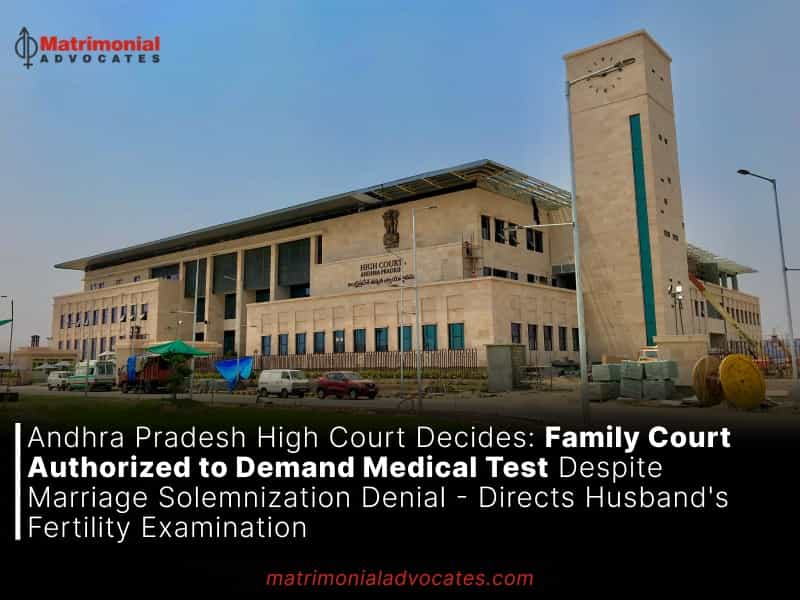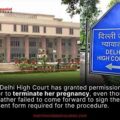
In a recent civil revision petition, Justice B.S. Bhanumathi of the Andhra Pradesh High Court invoked a precedent from the Supreme Court, Sharda v. Dharmpal (1985), to establish that a matrimonial court holds the jurisdiction to compel an individual to undergo a medical examination. This authority holds true even in cases where one party denies the marriage’s occurrence, as the denial of marriage alone cannot be used to negate such relief.
The petitioner lodged an initial plea to annul the marriage between them and the respondent. Additionally, they pursued claims for damages, compensation, and reimbursement of marriage-related expenses.
According to the petitioner’s account, the marriage was unconsummated due to the respondent’s alleged impotence. Moreover, the petitioner accused the respondent of misconduct, including physical harassment and demands for an increased dowry.
In response, the respondent filed a counter-statement refuting the assertions of marriage solemnization. He argued that this petition was an extortion attempt aimed at obtaining money from him.
Subsequently, the petitioner initiated proceedings under Section 45 of the Indian Evidence Act, seeking an order for the respondent to undergo a medical examination. The objective of this examination was to establish the respondent’s potency status through scientific evidence, thereby corroborating the petitioner’s case.
The opposition to the petition primarily hinged on the argument that no marriage had taken place, and consequently, no marital relationship existed.
The Trial Court dismissed the petition, citing the burden of proving the marriage and acknowledging the advanced stage of the legal proceedings. In response, the petitioner filed a revision petition under Article 227 of the Constitution, challenging the dismissal order.
The legal counsel representing the petitioner asserted that the matter raised by the petitioner’s appeal could only be resolved through expert opinion. To support this contention, reference was made to the Supreme Court’s decision in Sharda v. Dharmpal (1985) and a ruling from the Andhra Pradesh High Court in G. Venkatanarayana v. Kurupati Laxmi Devi (1985).
In contrast, the respondent’s counsel argued that in the absence of any evidence substantiating the alleged marriage, granting the relief requested by the petitioner would essentially involve the collection of irrelevant evidence. According to their perspective, the evidence presented by the petitioner primarily indicated a betrothal ceremony rather than the marriage as claimed.
The court referred to the ruling of Supreme Court in Sharda (supra) as follows:
“86. To sum up, our conclusions are1. A matrimonial court has the power to order a person to undergo medical test.2. Passing of such an order by the court would not be in violation of the right to personal liberty under Article 21 of the Indian Constitution.3. However, the Court should exercise such a power if the applicant has a strong prima facie case and there is sufficient material before the Court. If despite the order of the court, the respondent refuses to submit himself to medical examination, the court will be entitled to draw an adverse inference against him.”
The court held that the petition for respondent to undergo medical test should be allowed to secure material evidence to enable the matrimonial court to decide the matter on merits even if it is filed at a belated stage.
As a consequence, the Civil Revision Petition was allowed.
Source : https://www.livelaw.in/high-court/andhra-pradesh-high-court/andhra-pradesh-high-court-ruling-matrimonial-court-order-medical-test-section-45-evidence-act-236349





